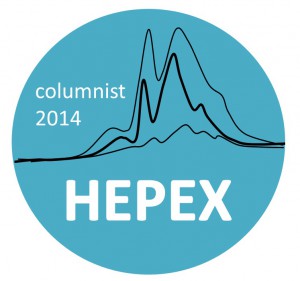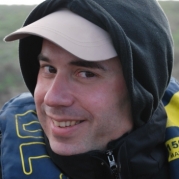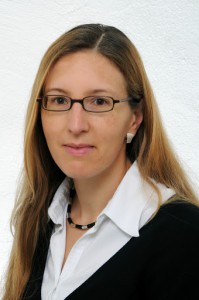Meet Hepex Columnists for 2014
 Hepex has four Guest Columnists for 2014.
Hepex has four Guest Columnists for 2014.
They are men and women who kindly accepted to regularly share their expertise and views with us. Each columnist will take turns publishing posts for a total of six each over the year. Follow our columnists and comment their posts here.
To help you get to know our contributors, here are their profiles and their answers to the question we asked them:
If you had to choose one film, one book and one hydrological model to take to a desert island, which would they be?

Anders Persson
If I end up alone on a desert island I would like to watch over and over again “Tous les Matins du Monde” partly for the music, partly for the endless intellectual discussions for which French films are so famous. The book would be Michael Spivak’s “Physics for Mathematicans, Mechanics I” unless Alexandre Moatti’s biography on Gaspard Gustaf Coriolis at last has been published. The hydrological model I would chose would of course be the latest version of the HBV-model since now I would have good opportunities to see how it works.”
Anders Persson: Anders has over 40 years of experience in forecasting and has worked as research meteorologists at ECMWF, SMHI and UK Metoffice. Even though a meteorologists by training, he became acquainted with hydrological forecasting when he assisted in the setting up of such a service at SMHI.

Liz Stephens
My favourite film is Amelie, although I’m not a big fan of watching the same film over and over, so if I was going to be stuck on a desert island I would take with me a recital of Tchaikovsky’s Piano Concerto No. 1 in B flat minor, as I could quite happily have that on repeat. My favourite book is probably House of Spirits by Isabel Allende, as that is the one I recommend the most. As for my favourite hydrological model, as someone who works with ensembles I couldn’t possibly choose just one!”
Liz Stephens: Liz started her Leverhulme Early Career Fellowship at the University of Reading in October 2013. Prior to that she worked as a post-doctoral research assistant at Oxford University on a project addressing the usability of probabilistic forecasts. She continues as an Associate role with the Institute of Science, Innovation and Society (InSIS) at Oxford. Her research has addressed the quantification and attribution of uncertainties in the modelling and mapping of flood risk, as well as the challenges of communicating and utilising complex ensemble model output. Visit her website here.

Tom Pagano
Could I have one of those “inflatable raft in a book”- type books? Honestly, I would probably choose something on desert island survival. As part of my training as a hydrologist I had to go to a snow/wilderness survival school and the final exam was sleeping overnight in a snow cave I had dug myself. That night I slept like a baby- waking up every half hour fussing and crying! Therefore, I think I’d need all the help I could get.”
Tom Pagano: Tom was an operational river forecaster with the USDA Natural Resources Conservation Service National Water and Climate Center in Portland, Oregon. For about six years he forecasted the Colorado River, Rio Grande, Arkansas River and Alaska. In 2008, he moved to Melbourne, Australia, as a research scientist at the CSIRO, developing methods to forecast floods, for use at the Bureau of Meteorology. He is currently working for the Bureau of Meteorology as the lead of the flood forecasting modelling team. For about a year and a half (2011-2012), Tom travelled around the world, visiting scientists and forecasters. His stories can be read in his blog ‘The River Seers’.
Bettina Schaefli
I have never watched a film more than once, nor re-opened a 2nd time one of the many books I have read. I would rather take an empty book and use the time to finally write something else than hydrological literature. If, before embarking to this desert island, I felt the urgent need to take a computer and a hydrological model with me, I would go to see a psychologist.”
Bettina Schaefli: Bettina is senior research associate at EPFL (Ecole Polytechnique Fédérale de Lausanne, EPFL) and assistant professor at TU Delft. She did her PhD in Switzerland, at the Laboratory of Hydrology and Land Improvement of EPFL and postdoctoral researches at University of Potsdam, University of Illinois at Urbana-Champaign and University of Bologna. Her research on hydrological modeling, especially precipitation-runoff modelling in cryosphere-dominated catchments, focuses on questions like how to connect top-down modelling approaches (analytical and conceptual) and bottom-up (physical) modelling approaches and how to quantify related modelling uncertainties.
___________
The first Hepex Columnist Post will be published this Friday, 24 January. Follow our columnists and comment their posts here.

0 comments